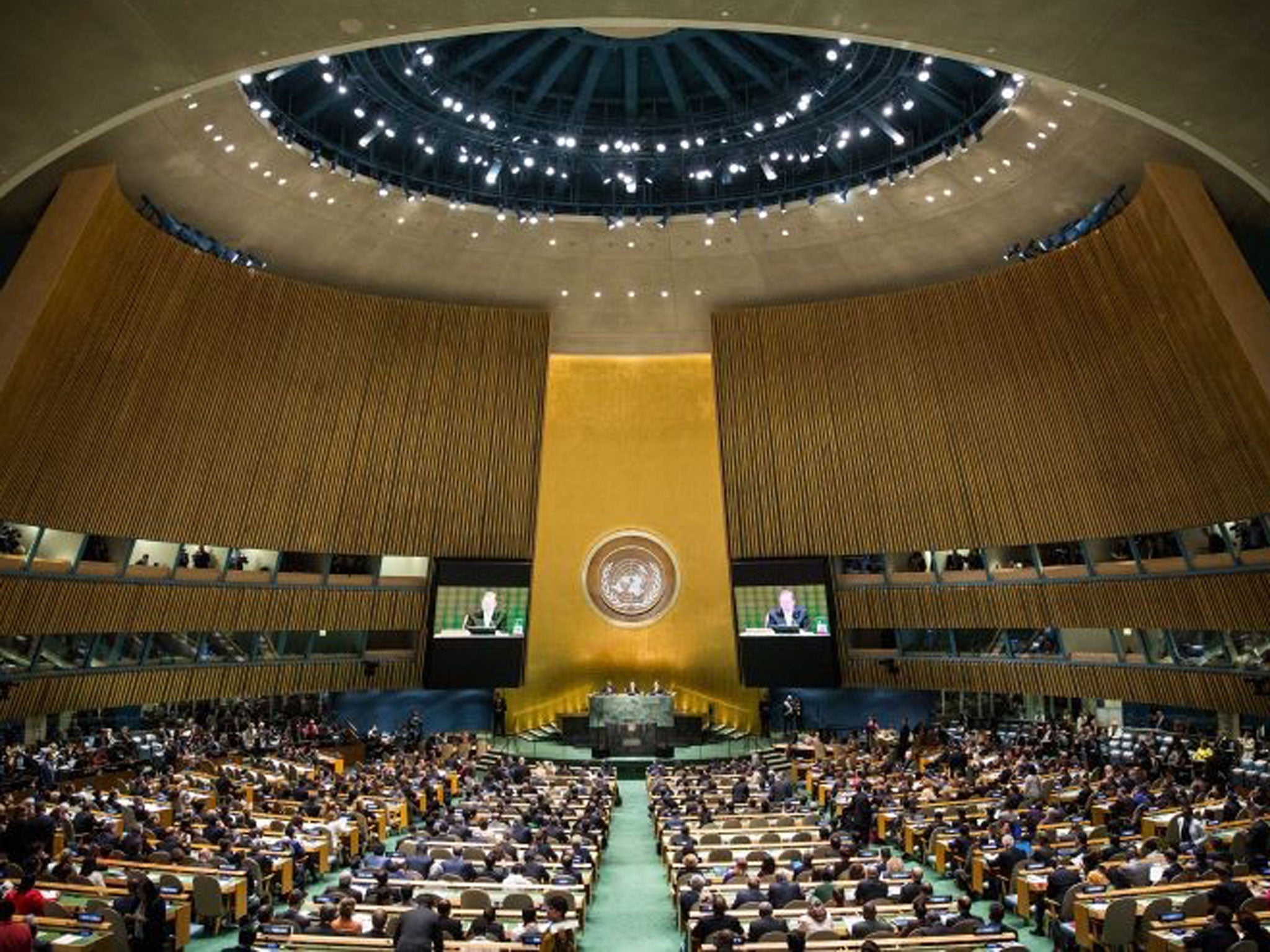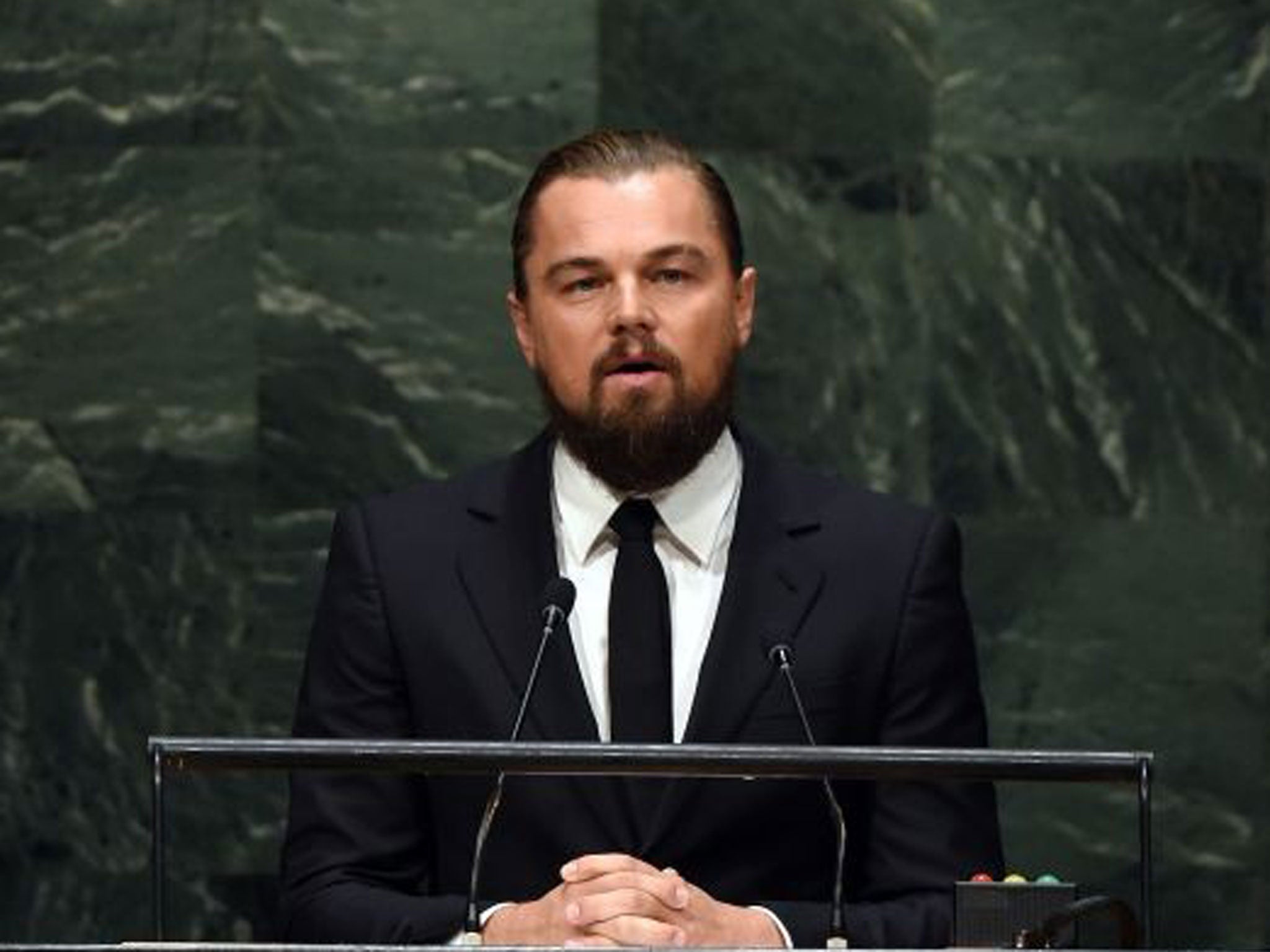Climate Change Summit: World leaders reach fragile consensus on global warming
Just days after thousands marched for action, politicians declared their commitment to tackling the issue urgently. They were joined by one very notable celebrity activist

Your support helps us to tell the story
From reproductive rights to climate change to Big Tech, The Independent is on the ground when the story is developing. Whether it's investigating the financials of Elon Musk's pro-Trump PAC or producing our latest documentary, 'The A Word', which shines a light on the American women fighting for reproductive rights, we know how important it is to parse out the facts from the messaging.
At such a critical moment in US history, we need reporters on the ground. Your donation allows us to keep sending journalists to speak to both sides of the story.
The Independent is trusted by Americans across the entire political spectrum. And unlike many other quality news outlets, we choose not to lock Americans out of our reporting and analysis with paywalls. We believe quality journalism should be available to everyone, paid for by those who can afford it.
Your support makes all the difference.World leaders arrived in New York today for a day dedicated to addressing arguably the gravest threat of all to peace and security – the sabotaging of the world’s fragile climate – while at the same time trying not be distracted by a burst of diplomatic static caused by strikes overnight against extremists inside Syria.
Against the boisterous backdrop of the marches for action on global warming in New York and other cities on Sunday, the Climate Change summit featured a parade of prime ministers and presidents offering funds and vowing to be united in time for the end of next year when a new global treaty on emissions will have to be struck in Paris.
“The clear scientific evidence is that our actions as humans are the main cause of global warming,” the Prime Minister, David Cameron, told the meeting. “That means if together we have the resolve, our actions can address this. But to do so we must agree a global deal in Paris next year. We simply cannot put this off any longer.”
Ban Ki-Moon, the architect of the summit who joined the marchers in New York, nonetheless opened his main press conference of the day with a strong endorsement of the strikes in Syria conducted on the extremist Sunni movement Isis by the United States and five Arab nations. It was “undeniable”, he said, that “these extremist groups pose an immediate threat to international peace and security”.
By this morning, climate change and the future of the planet will already have given way to the crises of the here and now, notably Isis. But even if corridor gossip in New York was more about Isis than deforestation or the rising of the oceans, some at the climate summit sensed a new and important momentum. It was the first gathering of so many world leaders since a similar gathering in Copenhagen five years ago that ended with no progress at all. One after another, leaders of countries pledged new sums to help fund action to curb emissions, much of it for developing countries that cannot bear the cost of such steps alone. Among them, the French President, François Hollande, promised $1bn in a new contribution by France to a global climate change fund.

Delegates said the noise created by the weekend marches and a protest on Monday in Wall Street had helped. Dr Rajendra Pachauri, the chairman of the UN Intergovernmental Panel on Climate Change (IPCC), said he was optimistic that this “heightened awareness” would lead to crucial action to avoid the most devastating impacts of global warming.
Of the more than 2,700 climate-change marches in 161 countries over the weekend he said: “I see a clearly heightened awareness of climate change and what that means for people’s livelihoods around the world.
“The marches were quite unprecedented, as is this high-level summit. It could very well be a turning point. I’m optimistic that from now onwards we will see global society moving towards a solution,” he told The Independent.
Meanwhile, more than 150 countries set the first-ever deadline to end deforestation by 2030 in a joint declaration, even though a key player, Brazil, declined to join it. The United States, Canada and the entire European Union all signed on to the declaration to halve forest loss by 2020 and eliminate deforestation entirely by 2030.
“Today we must set the world on a new course,” Mr Ban declared in his opening remarks to the meeting. “Climate change is the defining issue of our age. It is defining our present. Our response will define our future.”
The EU made a new promise to work to continue to cut emissions beyond the 2020 horizon so that by 2030 greenhouse gas emissions in the bloc would be 40 per cent below the 1990 level. The vow also calls for using renewable energy for 27 percent of the EU’s power needs and to increase energy efficiency by 30 percent.
“The European Union is on track to meet our targets and at same time we have seen our economy grow,” Jose Manuel Barroso, the European Commission President, said. “We prove climate protection and a strong economy must go hand in hand.” He added that the EU would give $3.9bn to help developing countries adopt climate-friendly policies.
Film star Leonardo DiCaprio also spoke at the conference as a “concerned citizen”, but environmental activists attending the summit warned that the pledges to take voluntary steps would not necessarily translate into an agreement on a new global treaty with binding emissions limits in Paris next year.
“World leaders will be congratulating the private sector on a series of empty promises, instead of delivering a global agreement to tackle climate change that’s already having huge impacts for poor communities around the world,” said Brandon Wu, an environmental expert with the international NGO ActionAid.
Join our commenting forum
Join thought-provoking conversations, follow other Independent readers and see their replies
Comments